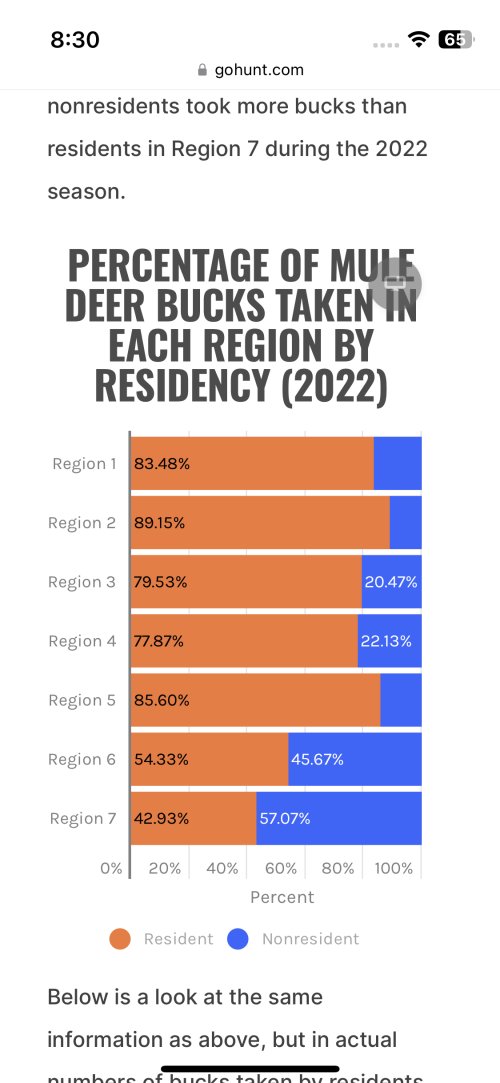First of all, those things do help. Anyone saying otherwise is full of chit.You are right its not. That's not at all what I'm saying, in fact the exact opposite.
I'm done and exhausted, this discussion is getting tiring since every time I say something, people twist what I'm saying or don't understand.
I'll try one last time - simply put I used to believe that donating money to wildlife organizations was considered advocacy and spending time researching, learning and submitting comments/emails to those making decisions was worth the effort. When I'm told that I'm not needed and these things aren't enough to actually help wildlife I'm starting to feel that I should just stop. It isn't just one person here, its dozens. There is very little appreciation shown to the role that the NR plays in wildlife management across the western states. Or at least that is how I feel each time I log into HT.
I went and looked at this thread and a couple others and I've not seen where it was stated that those efforts don't help wildlife. There is something beyond stated words that causes that feeling you express; a feeling other non-residents express.
Understand that Hunt Talk isn't a good representation of the average western resident hunter. Most western residents on Hunt Talk would raise resident fees in a heartbeat, which would take pressure off the funding part of wildlife agencies, which is a part of wildlife management. We cant get our fellow resident hunters or our legislatures on board with that, so it continues as is, even if the average HT member would pay 2-10x their current fee. Funding is the place where non-residents do the disproportionate share.
Yet, that is only a portion of what it takes. And most here who are residents would be happy to make up the differences in their home states of the west.
Life's most valuable commodity is time. Wildlife management and advocacy takes a ton of time. Geography and distance makes it hard for a lot of non-residents to take time to help in other states. That is a reality I accept. I don't expect non-residents to show up at legislative meetings, take time from their work to travel for fence pulls, to volunteer for a youth day here, to (insert the many other actions that require a physical presence).
And I know I can only do very little of that, if any, in Wyoming, or Colorado, or New Mexico, or Alaska, or ...... When residents of those states want to retain their share of a shrinking opportunity, I completely understand. I don't view that as discounting my license purchase, the comments I might send on issues in their state, or my donations to the NGOs who do work in those states.
Their desire to keep their opportunity isn't selfish. It isn't unrealistic. It is based on the realities of how our wildlife systems have worked since 1842. I might wish I wasn't subject to a 10% cap in Nevada and I would have burned my sheep points by now, but that is a wish not based in reality. I wouldn't confuse realities of how the systems work with western non-residents being selfish or unappreciative.
These discussions, like most of our social discussions, end up on the extremes. In this case it is the "We pay the freight and you'd be eff'd without us" statements against the "Eff you, we will do just fine without you and your money" statements. Both positions have some truth to them, but are not reflective of the reality of the situation and neither reflects the position of most Rs or NRs. And neither of those statements do anything to put more critters in the hills, a solution that makes most of these discussions go away.





